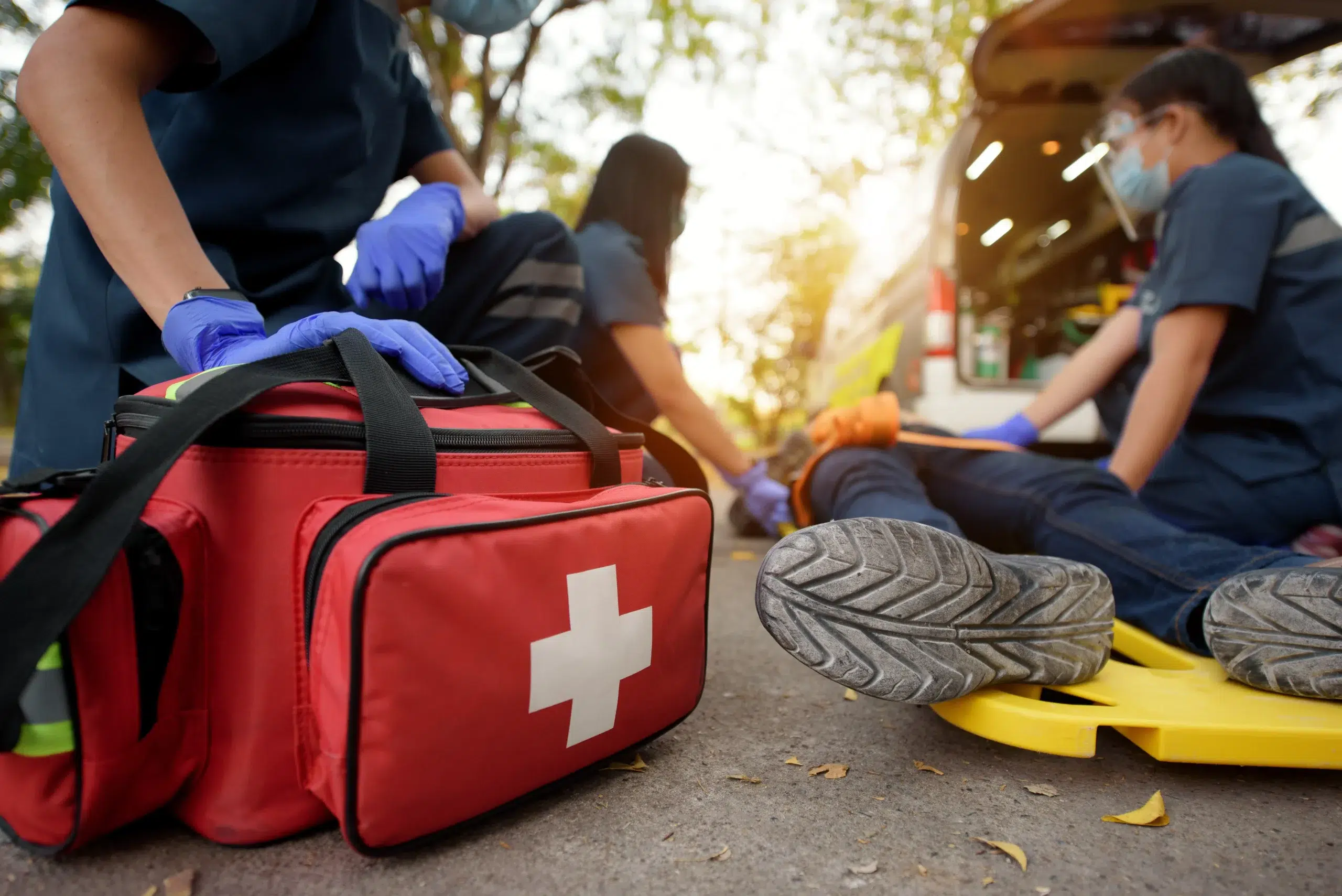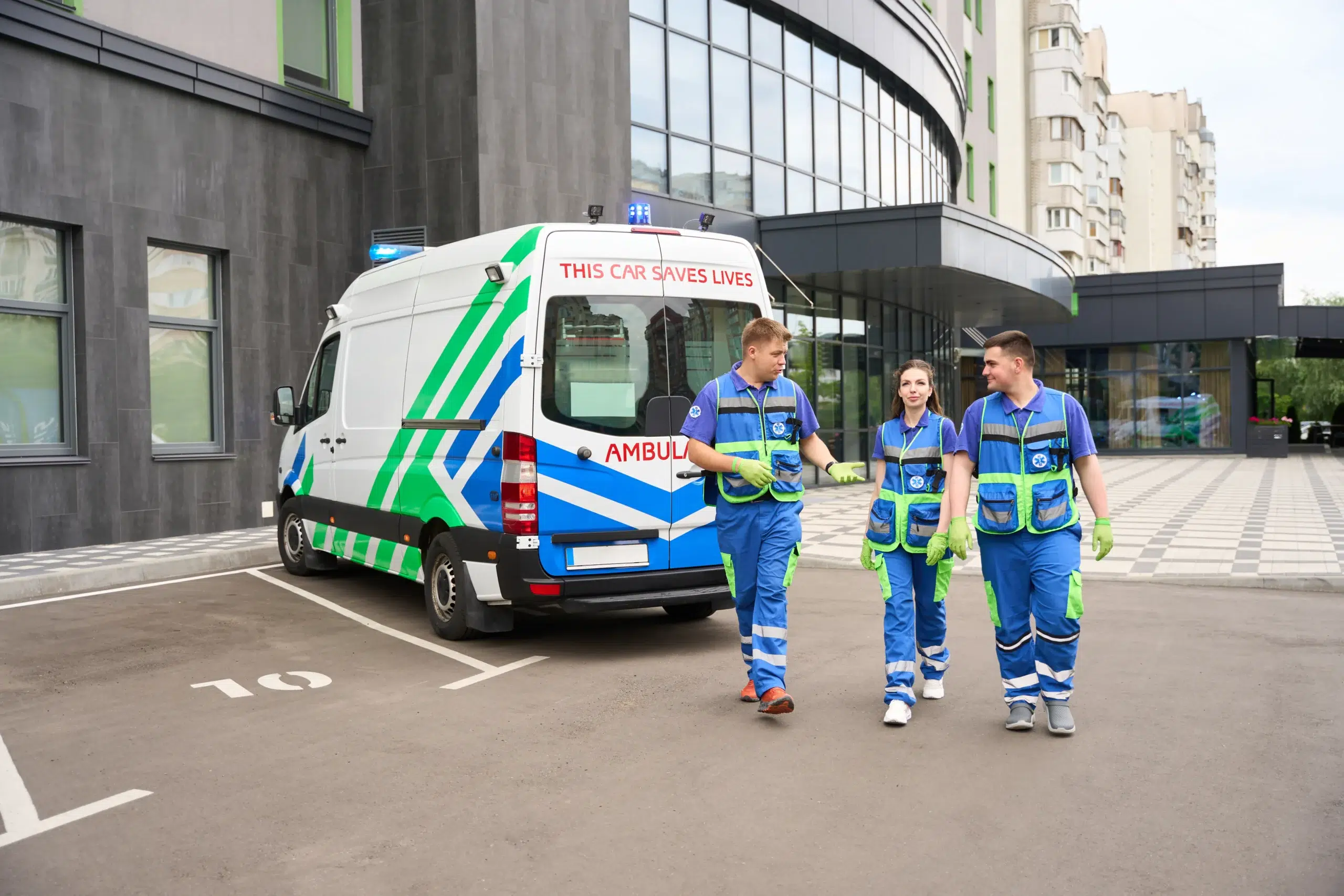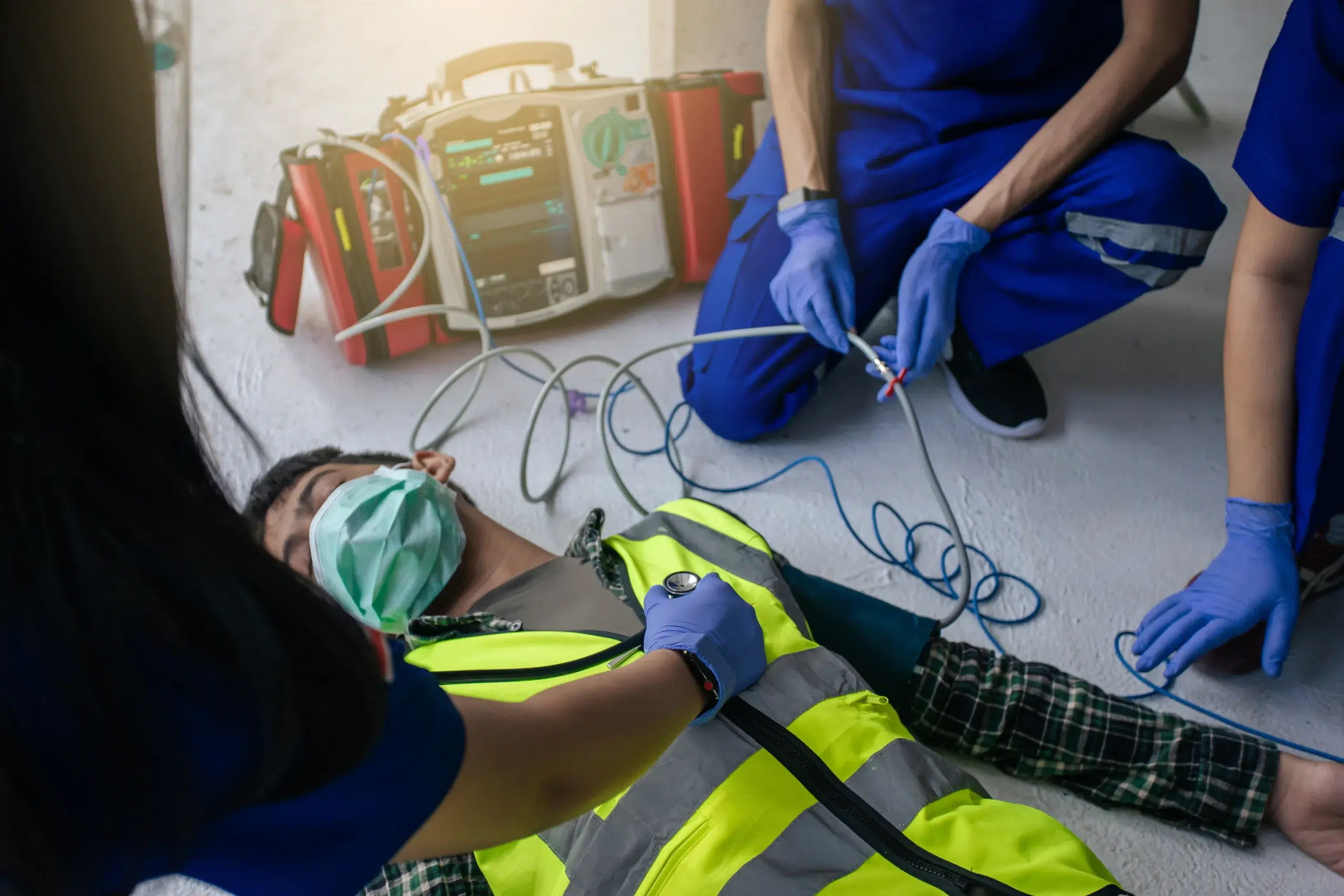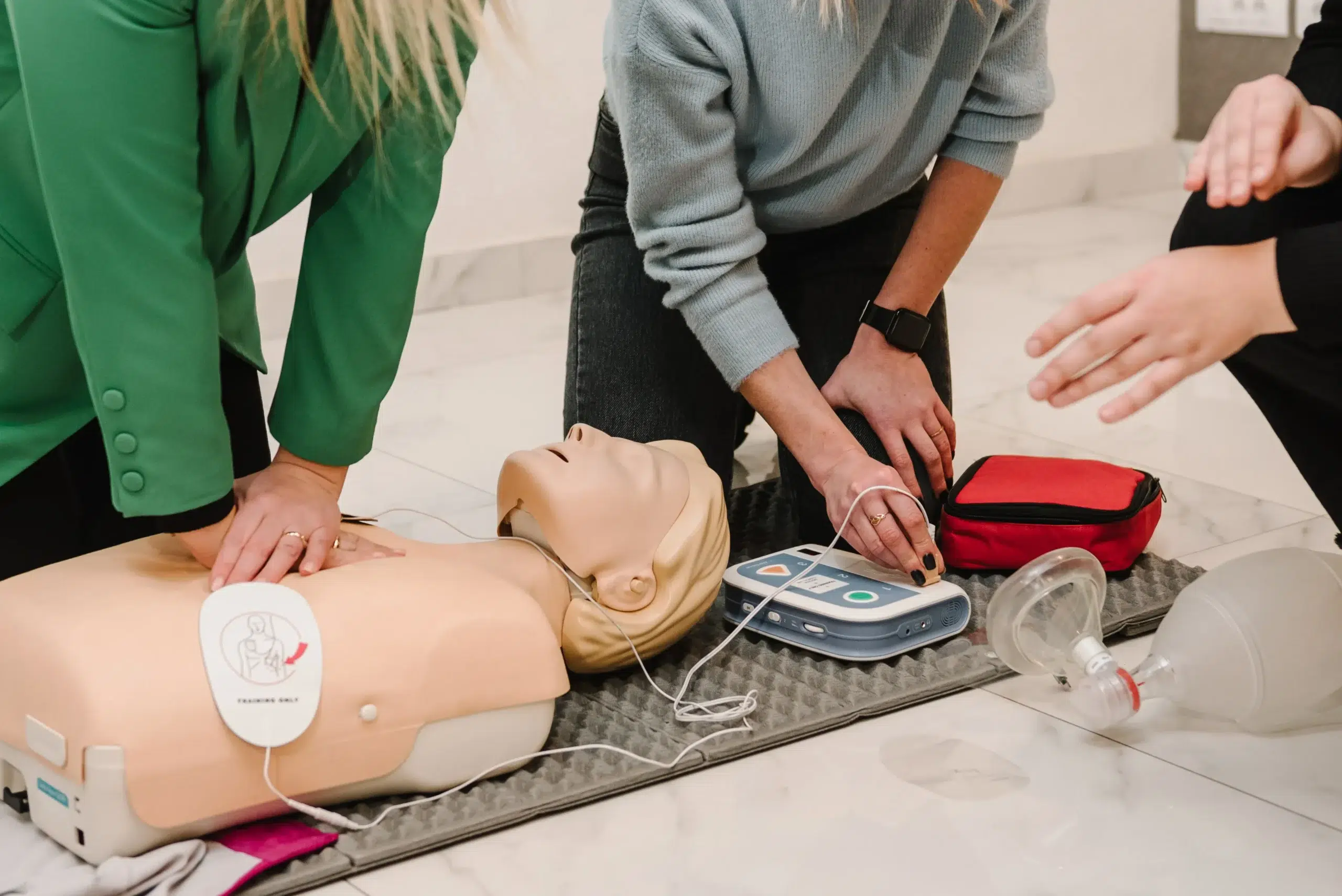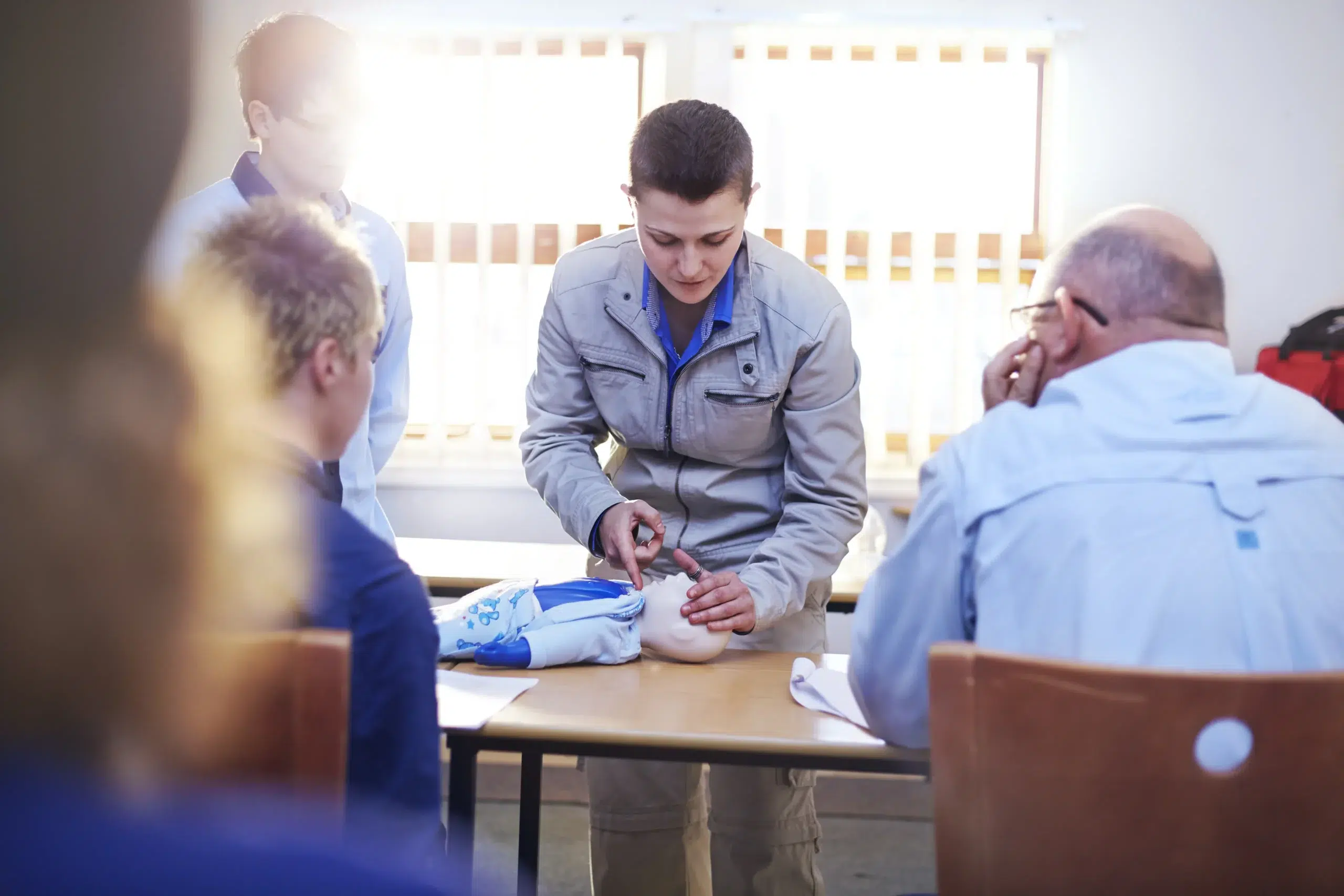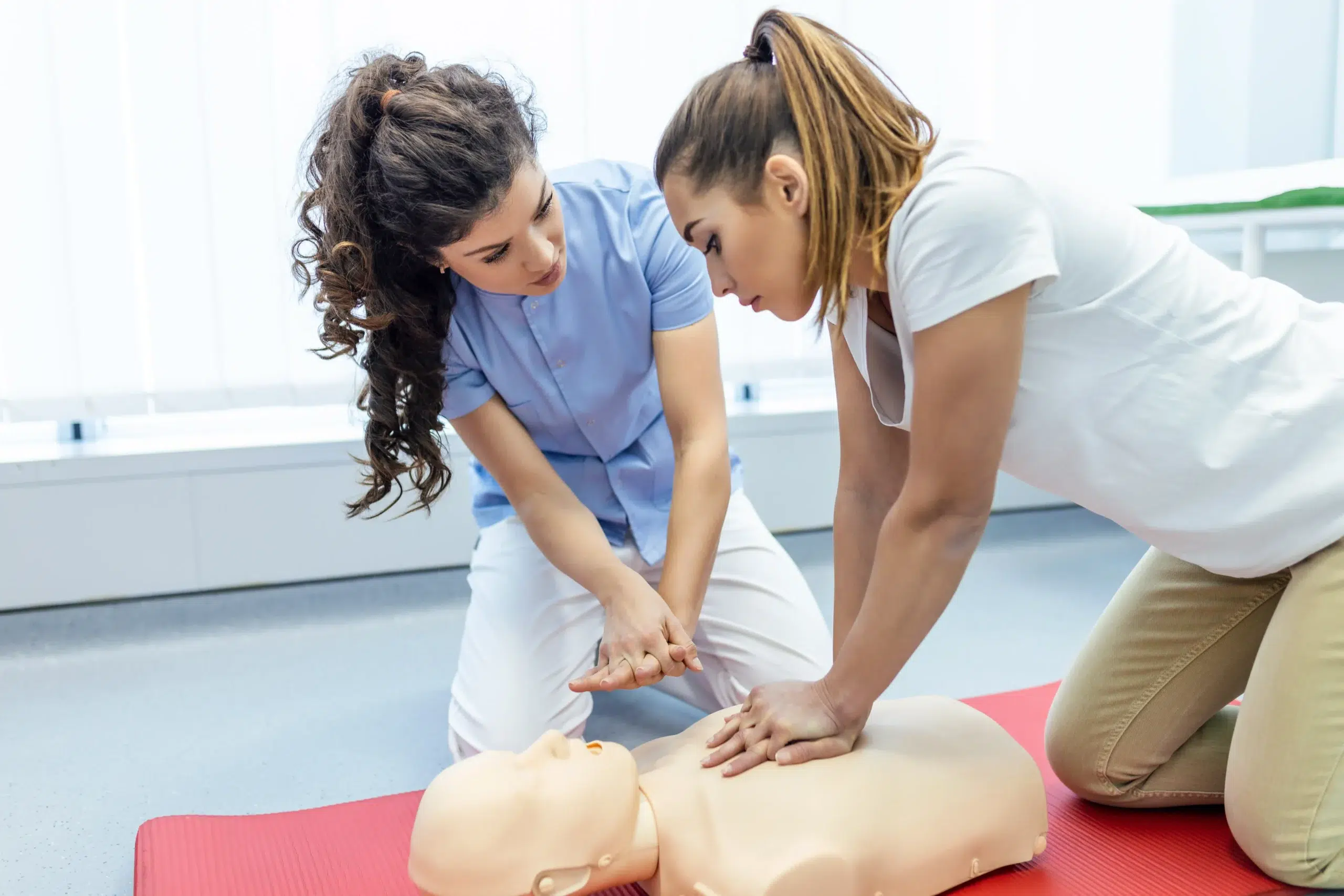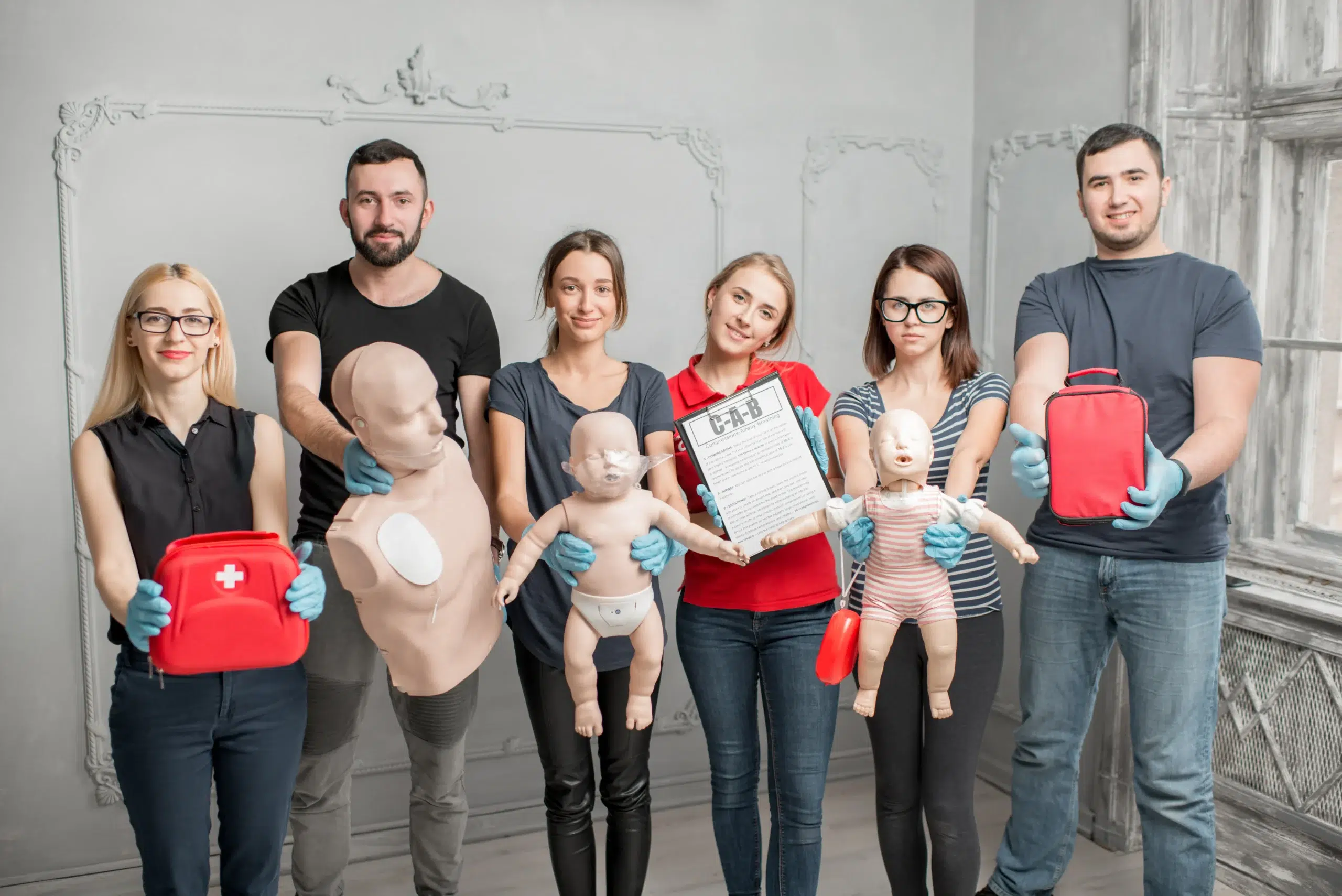Your BLS certification is about more than just a credential; it’s a testament to your commitment to providing high-quality care in emergencies. This article simplifies the recertification process, providing clear, actionable steps to renew your BLS. We’ll explore various training options, discuss the importance of staying up-to-date with the latest guidelines, and offer practical tips for finding “BLS recertification near me.” We’ll also cover the typical costs associated with recertification and how to prepare for your renewal course.
Key Takeaways
- Regular BLS recertification demonstrates your commitment to providing effective, up-to-date care during emergencies. It’s a vital step in maintaining proficiency in life-saving techniques.
- Choosing the right recertification course depends on your individual needs and preferences. Consider factors like cost, schedule, and learning style when selecting between in-person and online options.
- Proper preparation, including reviewing updated guidelines and practicing key skills, is crucial for successful BLS recertification. Take advantage of available resources and choose a course that fits your learning style.
What is BLS Recertification?
BLS certification is essential for many healthcare professionals and other roles requiring emergency care skills, such as lifeguards and fitness instructors. This certification equips individuals with the knowledge and skills to respond effectively in emergencies, including performing CPR and using an AED. BLS recertification is the process of renewing your existing BLS certification to maintain those crucial skills and stay current with the latest guidelines. At Pleasant Hill CPR, we offer a variety of courses to fit your schedule and learning style.
Key Skills & Techniques
BLS certification training covers a range of life-saving techniques, including the use of automated external defibrillators (AEDs), basic airway management, and techniques for assisting someone who is choking. These skills are fundamental for providing immediate care and can significantly impact patient outcomes during emergencies. Regular practice and recertification ensure you remain proficient in these critical areas. Our BLS courses emphasize hands-on training to build confidence and competence.
How Often Should You Recertify?
BLS certification typically expires every two years. It’s important to stay current with your certification to ensure you’re up-to-date with the latest techniques and guidelines from the American Heart Association. Renewal is sometimes possible up to 30 days after expiration, offering some flexibility. However, there’s no guarantee of a grace period, so keeping track of your certification status is essential. Contact us to learn more about our convenient and affordable recertification courses. We offer a low price guarantee to ensure you’re getting the best value for your training.
Why Recertify Your BLS?
Keeping your Basic Life Support (BLS) certification current isn’t just about checking a box—it’s a commitment to providing the highest quality care during emergencies. Whether you’re a seasoned healthcare professional or just starting out, staying up-to-date with the latest life-saving techniques is essential. Here’s why BLS recertification matters:
Patient Safety and Outcomes
Regular BLS recertification ensures you’re equipped with the most current guidelines and techniques for CPR, using an AED, and relieving choking. These skills directly impact patient outcomes during critical moments. Staying sharp and confident in your abilities can significantly improve a person’s chances of survival. It’s a continuous learning process that reinforces best practices and helps you deliver effective care under pressure. Think of it as a tune-up for your skills, ensuring you’re always prepared to make a difference. For healthcare providers, maintaining proficiency through BLS recertification demonstrates a commitment to patient well-being.
Requirements and Regulations
Many healthcare facilities, and other organizations requiring emergency care skills, mandate BLS certification for their employees. This isn’t just a formality; it’s a critical safety standard. BLS certification typically lasts for two years, and maintaining an active certification is often a condition of employment. Recertification demonstrates your commitment to professional standards and ensures you meet the necessary requirements for your role. It’s always a good idea to check with your employer or licensing board to confirm specific recertification timelines. Staying informed about these requirements ensures compliance and continued professional practice.
Career Advancement
In the competitive healthcare landscape, BLS recertification can be a valuable asset for career growth. It shows potential employers you’re dedicated to maintaining a high level of skill and knowledge. For nurses, in particular, BLS certification is often a prerequisite for many positions. Staying current with your certification can open doors to new opportunities and demonstrate your commitment to professional development. It’s a simple but effective way to enhance your resume and stand out from the crowd. Plus, the confidence you gain from knowing you’re prepared for any emergency is invaluable.
Find BLS Recertification Courses
Finding the right BLS recertification course involves understanding your options and choosing what best fits your schedule, learning style, and budget. Let’s break down how to find local providers, explore online options, and evaluate the quality of different courses.
Local Providers
Checking with established organizations in your area is a good starting point. The American Red Cross offers BLS recertification courses nationwide and often partners with healthcare providers and first responders. You can also search online using terms like “BLS recertification near me,” “BLS renewal courses,” or “AHA BLS recertification [your city]” to discover local options. Many organizations, like the American Heart Association, have search features on their websites to filter by location, course type, and schedule. Pleasant Hill CPR Classes offers convenient daily certification courses for residents of Walnut Creek, Concord, and Pleasant Hill, CA.
Online Options
Online BLS recertification courses offer flexibility for busy professionals. They allow you to learn at your own pace and often include interactive modules, videos, and practice tests. While online courses can be convenient, make sure they are accredited and meet the American Heart Association guidelines for BLS certification. It’s also important to verify that any online course includes a hands-on skills assessment component, often conducted through a local skills check.
Evaluating Courses
Before committing to a course, consider a few key factors. First, check if the course is accredited by a recognized organization like the AHA. The quality of course materials is crucial for effective BLS recertification. Look for courses that offer up-to-date information aligned with current guidelines. Consider the instructor’s experience and qualifications. Experienced instructors can provide valuable insights and guidance. Finally, think about the overall cost. BLS recertification courses typically cost between $75 and $120, depending on the training center, location, and course format. Pleasant Hill CPR Classes offers a low-price guarantee to ensure you receive high-quality training at a competitive price. Look for providers who offer group discounts. Regular recertification is crucial for staying current with the latest life-saving techniques, ensuring you’re prepared for emergencies. It demonstrates a commitment to patient safety and professional development.
The BLS Recertification Process
Renewing your BLS certification is straightforward. Here’s what to expect:
Eligibility
Before signing up for a BLS renewal course, confirm your eligibility. You’ll need a current BLS provider card, or one that’s recently expired (within the past 30 days). This ensures you’re already familiar with the latest BLS guidelines and best practices. The American Red Cross offers clear guidelines on BLS renewal eligibility.
Course Content and Duration
BLS recertification courses cover core life-saving skills and knowledge, like CPR, AED use, and relieving choking. Expect the course to last between two and a half to four and a half hours, whether you choose in-person training or online. The exact duration depends on the course provider and format.
Hands-on Practice
In-person BLS recertification classes offer hands-on training. You’ll practice your skills in a realistic environment and receive immediate feedback from certified instructors. This practical experience builds confidence and proficiency in emergencies. Hands-on training is a key component of many BLS renewal courses.
Exams and Renewal
The recertification process typically involves completing the required training and passing a written and skills evaluation. After successfully completing these steps, you’ll receive a renewed BLS provider card, valid for another two years. Save A Life CPR provides a helpful overview of the BLS renewal process. Contact Pleasant Hill CPR to learn more about our renewal options.
In-Person vs. Online Recertification
When it’s time to recertify your BLS, you’ll choose between in-person and online courses. Both options fulfill the requirements, but each has its own pros and cons.
Pros and Cons
In-person BLS recertification provides hands-on training and immediate feedback from instructors. This direct interaction can be invaluable for mastering techniques and asking questions. However, in-person courses typically cost between $60 and $120. They also require you to attend classes at a specific time and location, which may not fit every schedule. For busy professionals, finding the time for an in-person class can be a challenge.
Online BLS recertification offers flexibility and convenience. You learn at your own pace and complete the coursework from anywhere with an internet connection. Online renewal is often more affordable than in-person training. However, it may offer fewer opportunities for hands-on practice and direct interaction with an instructor. This can be a drawback for those who learn best through hands-on activities.
Choosing the Right Format
The best format for your BLS recertification depends on your learning style, schedule, and budget. If you value hands-on learning and prefer direct interaction, an in-person course might be a better fit. If you need a more flexible and affordable option, online recertification could be the right choice. Compare prices from different providers to find the best value. Pleasant Hill CPR Classes offers a low price guarantee to help make quality training accessible. Contact us today to discuss your recertification needs and find the perfect course.
BLS Recertification Costs
Knowing the typical costs associated with BLS recertification can help you budget effectively. This section breaks down typical price ranges, additional fees to watch out for, and potential discounts.
Typical Prices
BLS recertification courses typically cost between $70 and $150. In-person training often sits at the higher end of this range, from $75 to $120, depending on the location and training center. Online BLS recertification can sometimes be more budget-friendly. Compare prices from a few different providers in your area to find the best value. A lower price doesn’t always mean lower quality; many reputable providers offer competitive rates.
Additional Fees
While the course fee usually covers the core instruction and certification, there might be additional costs. Some providers charge separately for training materials, such as the student handbook. Always check with your chosen provider to see what’s included and what you might need to purchase separately. For example, Berkeley CPR Classes often bundles materials into their course fee.
Discounts and Group Rates
If you’re coordinating training for a group, explore group discounts. Many training centers offer reduced rates for group bookings. For example, ACLS National offers discounts for organizations certifying multiple personnel. These discounts can reduce the overall cost, making it more affordable to train your entire team. Some providers base their group discounts on the number of courses purchased rather than the number of students, so clarify the specifics with the training center. ACLS Medical Training caters to various group sizes, making it easier for organizations to access affordable training.
Prepare for Your BLS Recertification
Getting ready for your BLS recertification doesn’t have to be stressful. With a little preparation, you can walk into the exam room feeling confident and prepared. Here’s how to get ready:
Study Materials
One of the best ways to prepare is to review the latest guidelines. Resources like the 2023 BLS Guidelines Updates can help you stay up-to-date. Many BLS renewal courses include training materials, so check with your provider to see what’s included. Our BLS recertification courses at Pleasant Hill CPR Classes include all the necessary materials.
Practice Tips
Hands-on practice is key to mastering BLS skills. If you have access to a manikin, use it to practice chest compressions, rescue breaths, and using an AED. Even without a manikin, you can mentally rehearse the techniques and visualize the steps. It’s also wise to compare prices from different providers to find the best value. Our low price guarantee ensures you’re getting a competitive rate.
Common Misconceptions
There are several misconceptions surrounding BLS certification. One common myth is that it’s only for doctors and nurses. BLS certification is valuable for anyone in a healthcare setting or related fields, from medical assistants and other healthcare providers to physical therapists, teachers, and coaches. Another misconception is that BLS training is too time-consuming. Our courses at Pleasant Hill CPR Classes are designed to be efficient and convenient. We offer daily certification courses, so you can find a time that works for you. Contact us if you have any questions. We’re here to help!
Top BLS Recertification Providers
Finding the right BLS recertification provider can feel overwhelming with so many options. To simplify your search, we’ve compiled a list of reputable organizations and companies offering high-quality BLS recertification courses. Whether you prefer in-person instruction or the flexibility of online learning, there’s a provider to fit your needs and schedule.
Pleasant Hill CPR Classes
For those in the Walnut Creek, Concord, and Pleasant Hill areas of California, Pleasant Hill CPR Classes offers a convenient and affordable option for BLS recertification. They provide AHA-compliant BLS courses including online coursework, skills testing, and your certification card. Their focus on customer service, flexible scheduling, and low price guarantee make them a popular choice. Reach out to them today through their contact page to learn more.
American Heart Association
As the leading authority on resuscitation science, the American Heart Association (AHA) offers various ways to renew your BLS certification. You can choose online courses for added convenience or in-person classes for a more hands-on learning experience. AHA courses are widely recognized and accepted.
American Red Cross
The American Red Cross is another trusted provider of BLS recertification courses. They emphasize workplace safety and offer a streamlined BLS renewal process, available both online and in person.
National CPR Foundation
If you’re looking for a fully online BLS recertification option, the National CPR Foundation is worth considering. Their online courses allow you to complete the recertification process at your own pace.
ProTrainings
ProTrainings offers a wide range of online courses, including BLS recertification. Their self-paced format lets you learn the material on your own schedule and revisit sections as needed.
American Health Care Academy
The American Health Care Academy provides online BLS certification and recertification courses designed for busy professionals. Their accessible online format makes it easy to maintain your certification.
Related Articles
- BLS Renewal in Concord: Your Complete Guide – Pleasant Hill CPR Classes
- BLS Certification in Concord: Courses & Providers – Pleasant Hill CPR Classes
- BLS Certification Pleasant Hill: Your Complete Guide – Pleasant Hill CPR Classes
- BLS Renewal in Pleasant Hill: A Simple Guide
- Online BLS Classes in Walnut Creek: Your Complete Guide – Pleasant Hill CPR Classes
Frequently Asked Questions
How long is my BLS certification valid? BLS certification is typically valid for two years from the date of issue. It’s essential to recertify before your current certification expires to maintain your skills and comply with workplace requirements.
What’s the difference between BLS certification and recertification? Initial BLS certification involves completing the entire course, including learning the core skills and passing the exams. Recertification is for those who already hold a valid or recently expired BLS certification and need to renew it. Recertification courses are often shorter, focusing on refreshing your knowledge and skills.
Can I recertify my BLS online, or do I need an in-person class? Both online and in-person BLS recertification courses are available. Online courses offer flexibility, while in-person classes provide hands-on practice and direct interaction with instructors. Choose the format that best suits your learning style and schedule. Just be sure any online course you select includes a hands-on skills assessment component.
How much does BLS recertification cost? The cost of BLS recertification varies depending on the provider, location, and course format. Typically, courses range from $70 to $150. In-person courses tend to be on the higher end of that range. Look for providers who offer discounts for groups or a low-price guarantee.
What if my BLS certification has already expired? Some providers allow recertification within a short grace period, usually around 30 days after the expiration date. However, it’s best to recertify before your card expires. If it has been longer than the grace period, you’ll likely need to take the full BLS certification course again. Contact your chosen training center to confirm their policy.
